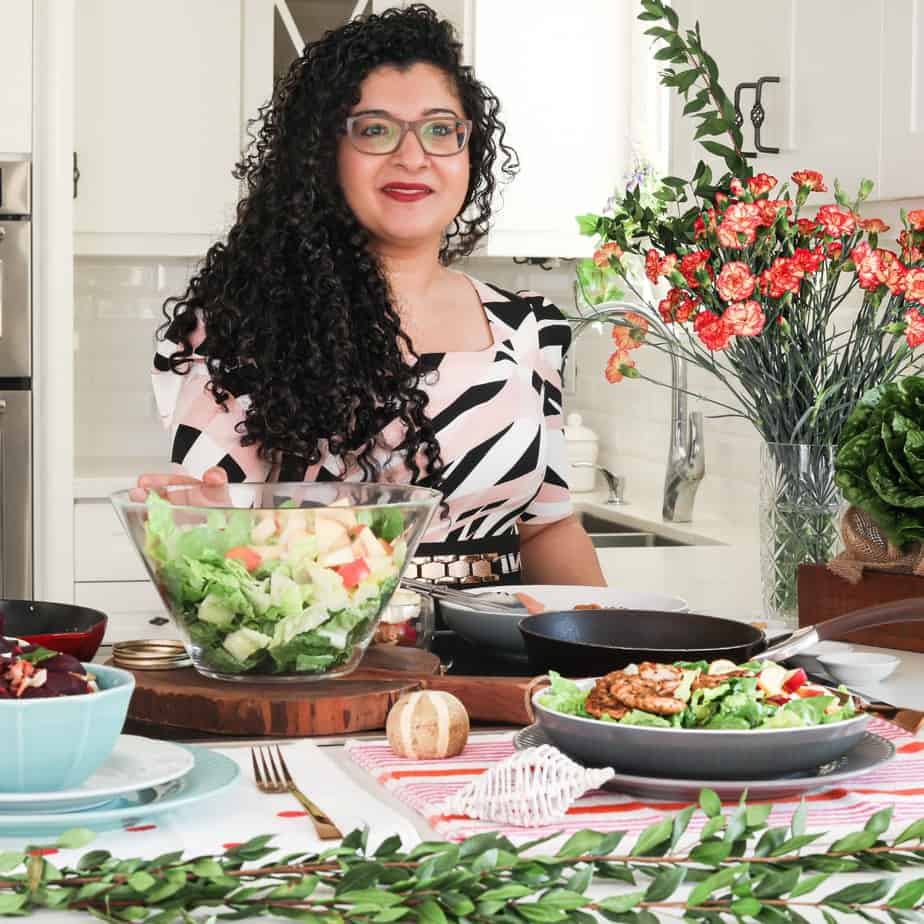So many of us enter Ramadan with all kinds of fitness and nutrition goals. However as the month progresses, it proves to be more and more difficult to keep up with them and with that, arises many health and nutrition related questions. Lucky for you, we had registered dietician and award-winning food blogger, Shahzadi Devje, answer the questions you guys had sent in! Keep reading to find out all about what we learnt from her:

1. There Are Many Ways To Ensure You’re Hydrated During Ramadan
If like us, you too struggle with hydrating yourself during Ramadan – don’t worry! Our expert had some tips to help solve that issue: break your fast with water instead of juice, keep a re-usable water bottle at hand, keep alarm reminders to drink water and rely on herbal teas or water infused with herbs and fruits if you don’t enjoy drinking drink plain water.
2. Iftar Options For Those With PCOS
There are several options for you to include in your iftaar meal to ensure you’re fulfilled, while keeping your PCOS in check. Shahzadi recommends, “fibre-rich, cruciferous vegetables like broccoli, cabbage, cauliflowers, radishes and turnips.” She also suggests filling up on lean protein sources like beans, lentils, tofu, fish and chicken, and relying on healthy whole grains like oats and barley.

3. Foods To Eat If Your Blood Pressure Goes Down During Ramadan
So many of us suffer from low blood pressure while fasting. This can make getting through Ramadan especially difficult, but fret not – our expert is here to help. Hydration is key which is why she says to ‘drink more water and fluids you enjoy. Include foods with higher water content such as watermelon, berries, tomatoes and leafy greens.’ She suggests experimenting with salt and caffeine and controlling their intake according to what works for you.
4. Mindful Eating Can Take Many Forms
Stressing about what to eat can completely suck the fun out of eating. Even if you are eating something that isn’t ‘healthy’, Shahzadi recommends being mindful about it. As she says, mindful eating can take many forms; even if you’re eating a pakora or a samosa, try to be aware of your food and savour your bite. This will help you avoid over eating and allow you to actually enjoy your food! Shahzadi also suggests filling your plate with colourful foods to ensure you’re getting all your necessary nutrients.

5. The Best Fruits To Eat At Sehri
Fruits are always a great option, and eating fruits that are rich in fibre, will keep you satiated. Our expert recommends ‘raspberries and tropical fruits like mango, papaya and bananas – slightly green ones as they contain resistant starch which will keep you full for longer!’ Apart from that, many fruits also provide us with necessary nutrients that can give us energy to get along our day with more ease.
6. Diet That Can Help You Gain Weight
For those who struggle to gain weight, Shahzadi recommends eating high protein food such as beans, lentils, chickpeas and fish. ‘Don’t restrict carbs and savour those whole grains. You want to boost the energy density of your diet by including nuts, seeds and avocado.’
7. Soluble Fibres Will Keep You Full For Longer
Foods that contain fibre will keep you energetic and full for the rest of the day. These include oats, beans, lentils, chickpeas, okra, eggplant, sweet potato, nuts and seeds. Shahzadi says, ‘they are digested more slowly so they are going to keep you full for longer and add lots of colour to your plate.’










What do you think?
You must be logged in to post a comment.